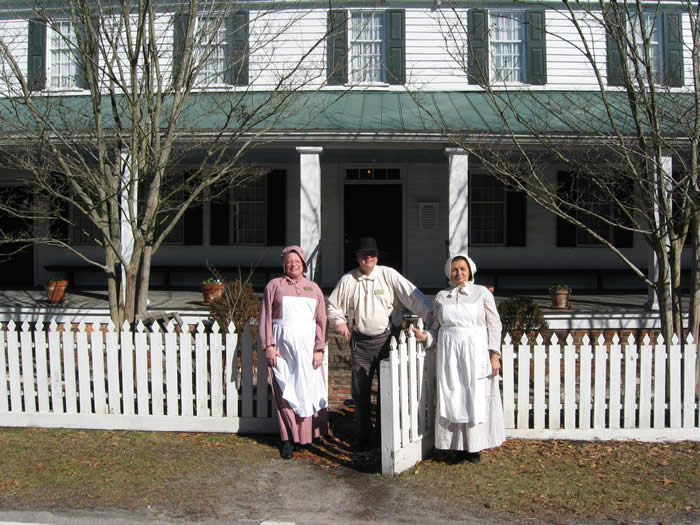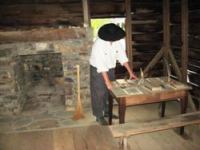Next Council Meeting
 The Official Web Site of the State of South Carolina
The Official Web Site of the State of South Carolina
Lexington County Administrative offices will be closed on Monday, January 19th in observance of Martin Luther King, Jr. day.
Lexington County administrative offices are open Monday through Friday 8 AM to 5 PM
The Lexington County Museum currently offers many hands-on educational experiences that allow children to step back into time.
These programs last approximately an hour and were designed to connect with South Carolina Social Studies Standards. Programs which are more suitable for younger audiences are noted in the descriptions.
Educational Programs are offered during the following days and hours throughout the year. Up to two successive one-hour tours may be done by each group during a day:Educational programs are offered during the following days and hours throughout the year. Up to two successive one-hour programs may be done by each group during a day. Programs are offered Tuesday through Friday only.
Times: 9:30 am – 10:30 am
10:30 am – 11:30 pm
1:00 pm – 2:00 pm
2:00 pm – 3:00 pm
Please contact Patricia Shandor, the Visitor Services Coordinator at 803-359-8369 for more information or to set up a tour.
These programs are offered free of charge. If you enjoy these programs, please consider making a donation to our youth education fund courtesy of the Friends of the Lexington County Museum. Checks can be mailed to the Friends of the Lexington County Museum, P.O. Box 637, Lexington, SC 29071.
Parents affiliated or unaffiliated with a homeschool organization are welcome to schedule a program for their children. We ask that all groups have a minimum of 12 students in order to schedule a program. We will also schedule special events and Hands on History programs periodically throughout the year to offer children the opportunity to attend one of our programs with their parents outside of school. The best way to find out about our special Hands-on History days is to follow us on Facebook, Instagram, or our website. You may also call our Visitor Services Coordinator at 803-359-8369.
Replica toys and games from the 1700s and 1800s help children to learn how children of the past enjoyed their leisure time. For example, children will see what dolls and action figures looked like in the 1800s and play with old-fashioned toys like Jacob’s ladders and tumbling men. This program is appropriate for most ages spanning our youngest preschool visitors to 2nd-3rd grade students. This program will be held in our air-conditioned tour office and is a good choice for hot or inclement weather. Due to the space constraints of this room there is a maximum number of 25-30 students allowed at a time.

Experience a typical school day in the 1800s through the three “Rs” Reading, wRiting, and aRithmetic. Other activities may include spelling bees, writing on chalk slates and writing with quill pens. Students will be able to draw comparisons with their current classrooms and also learn how the typical school experience has changed over time. This is a good choice for elementary social studies field trips and is often paired with our Colonial Home or Historic Pastimes programs. This program takes place in our un-air-conditioned 1815 schoolhouse and due to space constraints we limit students to a maximum of number of 20-25.
Children will learn about the historic farm buildings we have at the museum and will have an opportunity to use authentic tools to rake, hoe, plant seeds, and build a scarecrow in our farm setting. This program takes place outdoors and is most appropriate for our younger visitors aged 4-7 years-old.
Within the historic Lawrence Corley Log House, built around 1771, children learn about life in the Colonial era in the backcountry of South Carolina. Various aspects about what life was like in an 18th century cabin are demonstrated and discussed. In celebration of the 250th anniversary of the American Revolution we will also learn about the factors that influenced people in Lexington County to either choose to become Patriots or Loyalists and how the Revolution might have affected them. Children will also get to play Colonial games. This program is often selected for elementary social studies field trips and is frequently paired with the One Room Schoolhouse program. The Corley cabin is not heated or air-conditioned. Due to size constraints of the cabin, groups will be limited to 20-25 students.
Everyone loves the kitchen! After experiencing the kitchen and learning how certain items were used, children proceed into the kitchen yard and inspect all of the outbuildings used for preparing a meal. The activities in the yard include butter-churning, corn shucking, using a coffee grinder, and much more. Teachers and parents will be given a short list of food items needed to do this tour. Due to space constraints groups will be limited to 30 students. This tour is appropriate for elementary aged students and is primarily held outdoors..
This three-part program is an overview of postal history in early Lexington. Students will write a letter with quill and ink, learn how to fold and seal their letter with a wax seal, and discover how mail was “delivered” through an interactive game. Since this program involves reading and writing it is appropriate for 3rd-6th graders.
After the American Civil War, millions of African Americans set about transforming their lives, finding work, owning land and educating themselves and their families. Through a tour featuring pre- and post- Civil War artifacts and historic buildings, students will discover the lives of Lexington citizens during this
turbulent time. For example, students will learn about sharecropping by examining a sharecropper’s contract. Artifacts include: farm tools, family documents, Edgefield pottery and furniture. This program will take place both inside and outside. Due to the room constraints, groups will be limited to a maximum number of 25 students. This program is most appropriate for 7-12 graders.
Attendees will learn about Edgefield pottery and the enslaved potter and poet, David Drake in this interactive program. Students will get to see pottery made by Dave and other enslaved potters from Edgefield, SC while discussing the risks he took while practicing his craft and why he was an important figure in history. We will also discuss the technology of the pottery industry, the slave economy of antebellum South Carolina and the concept of ownership. This program also includes a hands-on activity and is suitable for 4th-6th graders.
In this program students will learn about the intersection of history, technology, industry and transportation in the 1700s and 1800s. Using buildings on our grounds including the 1800s cotton gin, the carriage house, log cabins and frame structures we discuss the challenges and solutions that early residents developed. We will also play games related to transportation. This program is appropriate for 4th-6th graders.
In this walking tour students will see a variety of plants and trees on the grounds of the museum complex and learn about their roles and importance in the lives of people living in Lexington County in the 1700s and 1800s. This program is appropriate for children of all ages as well as adults.
This 2 hour program offers a window into the culture and history of the early Cherokee Indians in the Lexington area. Children will learn about foods, nature arts and early technology. Original objects related to basketry, hunting, fishing, clothing, and pottery are shown. Each child gets to make their own clay pinch pot to take back to their class. Children will also participate in various Native American games such as Lacrosse, Chunkee, and others which test hand to eye coordination. These two hours are sure to provide great enjoyment and give good insight into the Cherokee culture. This program is available during morning hours only. This program is appropriate for elementary-aged students.
This tour is usually offered for one week in December and follows our annual Christmas Open House event. The John Fox House circa 1832 is decorated with period decorations. After the tours, the children make decorations such as popcorn strings, pomanders, and gum drop trees which they are allowed to take back to the classroom. Groups will be required to bring their own fruit for pomanders. These can be either apples, oranges, or other fragrant citrus fruits. This program is a most memorable Christmas experience! Due to the space constraints of the room groups will be limited to a maximum number of 25 students.